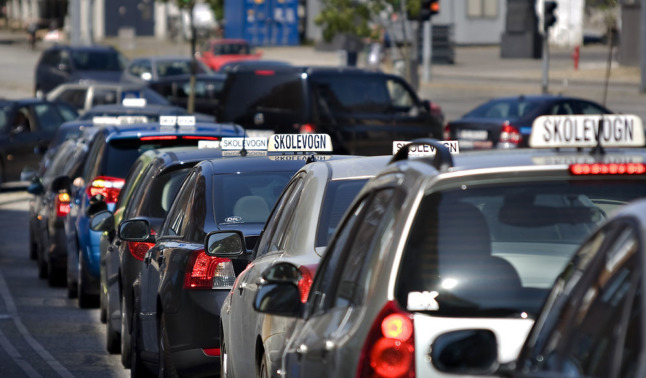The first time I was abroad when America went through a major change was in November 2008.
Cycling past ancient catacombs in the countryside outside of Rome seemed like a juxtaposition with the future-oriented shift that society had just taken.
Barack Obama had just became the 44th president of the United States, as I learned when I woke up early, rushing to the nearest Internet cafe to confirm the news.
I had just turned 23, just finished university, and had a feeling that could probably be turned into a long German compound noun: pride at representing your country abroad when it makes historic progress back home, and optimism about contributing to it soon.
My then-boyfriend and I, two American tourists, felt like minor celebrities as Italians we met congratulated us on our country’s positive turn. That evening I even posed for a photo on the steps of Trevi Fountain with an Italian daily newspaper headlining the US’s historic election.
I was swept away with satisfaction that our victory was also the world’s.
Twelve years later, seven of them spent living in Berlin, I have gotten used to seeing German media outlets led by US news, albeit of a very different sort. Some days the top story is devoted to the latest nonsensical quip President Trump made, some days about a new record number of confirmed coronavirus cases, and others on how riots are breaking out after another act of police violence.
I sometimes find myself thinking nostalgically about when my Heimat felt like an anchor, a secure and steadfast place (despite its flaws) that much of the world looked up to. For me, it was always my rock I could return to relatively easily, no matter how far away – and for how long – my studying or working or adventuring abroad took me.
In May, I cancelled my plane ticket to San Francisco, and reluctantly requested a refund rather than postponing it. To what date could I?
My safe haven has shifted continents, while my Sehnsucht (longing) for the one I want to visit but can’t has only grown.
That said, I am especially glad to live in Germany, where even in the worst turn of events hospitals have enough space, I do not have to worry about taking “too much” sick leave, and authorities act quickly to try and get new coronavirus outbreaks under control.
Yet my worries have grown about my family being in a country plagued especially hard by the pandemic, and under a leadership which is Chancellor Merkel's polar opposite: sporadic and letting politics win over scientific common sense. Trump never dared to don a face mask until a few weeks ago, when it was clear that not doing so could cost him votes.
As a German resident, I feel privileged to be able to travel within the European Union. Yet it makes me sad that other Americans are not allowed to travel here, most through no fault of their own.
As coronavirus infections in the US grow to over 4.7 million, with over 157,000 deaths, more and more people run the risk of getting sick in a system that has already been unhealthy for years.
As there are less than 100 days to the November 3rd elections, I find myself filled with a sensation of both anxiety and cautious optimism, with many questions tied to that day and the everyday.
Will things again change — and actually stay better this time? Will societal inequalities be more deeply recognized and tackled going forward? When will the US (and world) soon have a vaccine, maybe even one developed in Germany?
Here I am, again abroad, awaiting the answers of a far-away and chaotic and mismanaged country I have not been to in a long time, but is still the ever-hopeful and resilient roots of who I am.



 Please whitelist us to continue reading.
Please whitelist us to continue reading.
I am envious, Rachel. My family is in Heidelberg, and I am now a prisoner in my own home due to the abundance of COVIDIOTS everywhere in the USA. Recall, we (USA) currently are not welcome anywhere in the EU.
Thanks for this op-ed. My sentiments exactly. The oscillation between anxiety for the safety and health of my family and friends back home and then relief that my husband, daughter and I live in Germany is, well, exhausting. Praying our heimat will return to some semblance of sanity this fall.
Rachel, are there questions about your American passport when you cross EU borders?
This hit home with me. I’ve lived in Germany for 40 yrs but the last three are the first I’ve been embarrassed by my own country. I can only hope it gets better for them in the next election. It breaks my heart.
You know something? I am British, I have the same feelings about my country. I was caught in lockdown in Portugal, now in Germany with my German partner, my country is not so far away as America in travel, but statisticallypro size similar with something of the same leadership’
As a naturalized American I was proud to have my citizenship certificate with President Obama’s signature. I live back in Europe now and my feelings about the US range from disbelief (about almost everything happening there) to relief that I live in Germany which just feels more… well, safe and civilized to be honest about it.